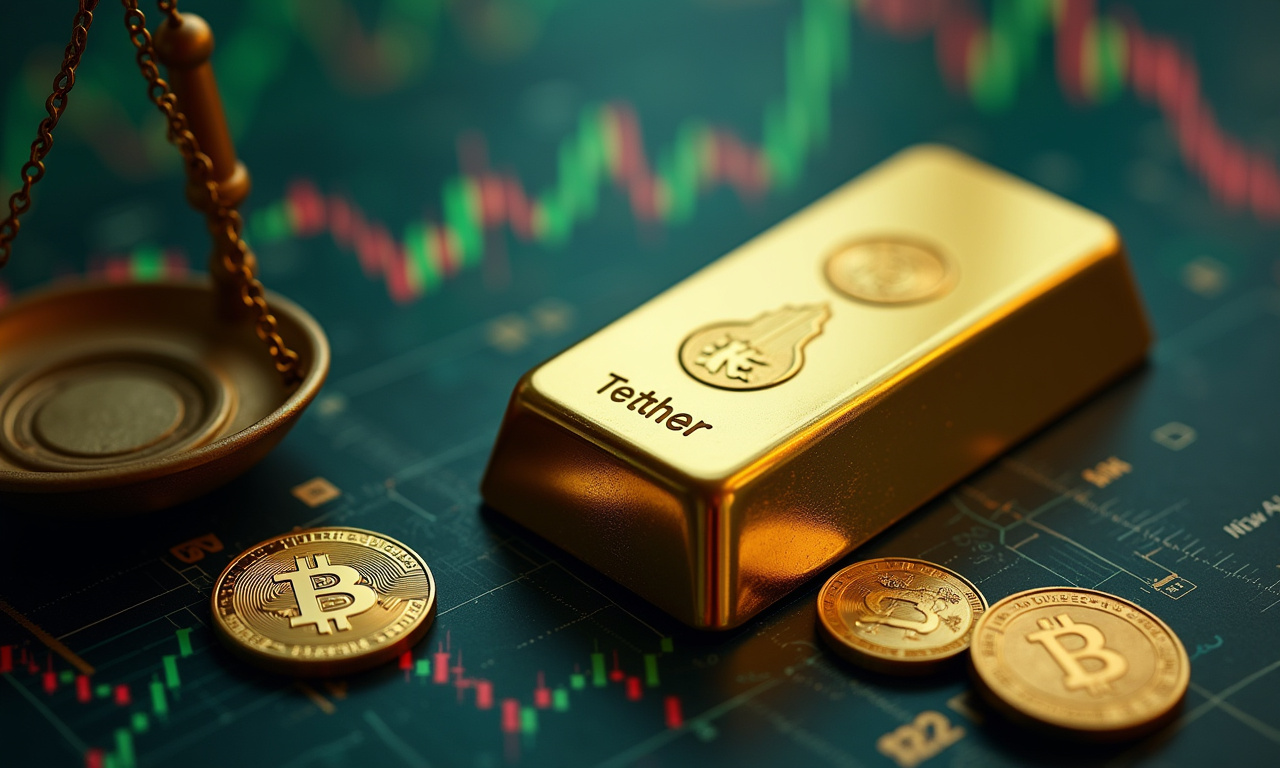BlackRock's $1.16B Bitcoin Buy: Is This a Trap?

A billion-dollar Bitcoin buy from BlackRock. Sounds impressive, right? Like the ultimate green light for crypto. But before you jump on the bandwagon, let's pump the brakes and ask a critical question: Is this too good to be true? Are we truly witnessing history, or are we being primed for a textbook example of institutional pump and dump?
Don't Be Fooled By Shiny Objects
Remember the dot-com bubble? The housing crisis? History is filled with cautionary tales of institutional players creating market bubbles. When the bubble bursts, it is retail investors that are left holding the bag. Even with its trillions in assets under management, BlackRock isn’t your friendly neighborhood investor. They’re a profit-maximizing advice machine, and their motivations are anything but noble.
What if Twenty One is more than a “Bitcoin acquisition company” Think of it as a massive robot for reliably stacking Bitcoin cheap, taking advantage of their relationships and war chest. Sounds cynical? Maybe. In the world of high finance, a bad attitude is sometimes just common sense.
BlackRock’s $80 billion investment was big in a matter of three days. Their introduction via the $IBIT spot Bitcoin ETF is certainly intriguing. Is it truly organic demand, or is it manufactured demand that’s designed to whip up some FOMO (Fear Of Missing Out) among retail investors?
Market Psychology: The Ultimate Weapon
Psychology of the market is a powerful weapon, and no one cares better than the too big to fail institutions like BlackRock. By making a highly publicized, massive investment in Bitcoin, they're sending a clear signal: "Bitcoin is the future. Get in now, or be left behind."
This creates a self-fulfilling prophecy. Retail investors, worried they’ll miss out on the next Google, Amazon or other great company that’s gone public, flood into the market, pushing prices higher. This is a winning strategy for BlackRock. They’ll be able to sell their holdings at a profit while the latecomers have to deal with the correction that surely will come.
Think about it. Ever seen an “insider info” inflationary hot tip on social media? We know it’s even more frustrating to then see the price tank immediately after you just purchased! No doubt that’s the magic of market psychology at work. ClayBro and Umar Khan, social media influencers with sizable followings, are apparently bullish on BTC Bull Token, the new meme coin. This is good news, but it does make you wonder.
- The Game Plan
- Pump: BlackRock buys big, creating hype.
- FOMO: Retail investors jump in, driving up the price.
- Dump: BlackRock sells, taking profits.
- Bag Holders: Retail investors are left with losses.
Bitcoin was created in opposition to centralized control and the erosion of financial freedom. As institutions such as BlackRock accumulate growing investments, are we going to a more centralized environment, where a few deep-pocketed, powerful players dominate the market?
Bitcoin's Future: Centralization or Decentralization?
This should seriously call into question the long-term, uh, viability of Bitcoin. If just 10 institutions can change the price on a dime, how truly decentralized of a currency is it? Or is it simply a new asset class? Ironically, it appears to be more vulnerable to the all-too-familiar forces of greed and manipulation that plague traditional finance!
Then there’s the smaller players in the crypto space. Other projects such as Stacks (STX), Chainlink (LINK), and Injective Protocol (INJ) are all competing for traction and adoption. 2 competing against BlackRock’s marketing muscle and financial wherewithal.
Indeed, BlackRock’s CEO Larry Fink has been touting the goodness of DeFi. Is this true interest, or just a shrewd play to at once gain more control and thus fuel their growing power in the crypto universe?
True, right now Chainlink has a “monopoly” over the oracle market but all monopolies are susceptible to disruption. Injective Protocol's DeFi apps and AI integrations are impressive, but they're just a drop in the ocean compared to BlackRock's resources.
Be skeptical. Do your own research. Don't let the hype cloud your judgment. And keep in mind that in the world of finance, you know what’s free isn’t free. There's always a catch. The real question is, can you catch it before it’s too late.
The bottom line? Be skeptical. Do your own research. Don't let the hype cloud your judgment. And remember, in the world of finance, nothing is ever truly free. There's always a catch. The question is, can you see it before it's too late?

Ava Thompson
Blockchain Market Psychology Editor
Ava Thompson explores blockchain and market psychology through an evidence-based yet human-focused lens. She bridges strategic thinking with direct, nuanced communication, and her work features a balance of in-depth analysis and relatable storytelling. Outside the newsroom, Ava is an avid urban gardener and street art enthusiast.
Related News

Altcoin Apocalypse? Why Bitcoin's Dominance Surge Should Terrify You
Forget the Lambo dreams. Forget the moon shots. So in the current state of things if you are a big holder of altcoins, you should be scared to death. Bitcoin’s recent dominance surge isn’t just a momentary spike, it’s a flashing red warning light. This does not indicate positive fundamentals...

Tether Gold (XAUt) Risks You Can't Ignore, and How to Navigate Them
XAUt, Tether’s gold-backed token, offers the glitter of gold with the convenience of crypto. Sounds great, right? Maybe. In the information age, the hunt for treasure has changed entirely. We no longer protect our treasures with maps and shovels, but rather blockchains and private keys. Before you begin this tech-driven...

Tether Gold (XAUt) is the Future of Gold Investment, Here's Why
Traditional gold is dead. Well, not dead perhaps, but definitely of on life support. Think about it: you're either lugging around heavy bars in a vault (and paying someone to guard them), or trusting some ETF to actually have the gold they say they do. That's your 'store of value'?...